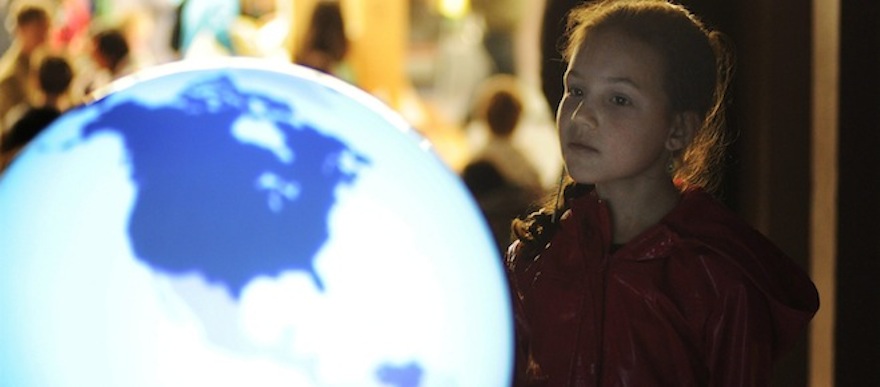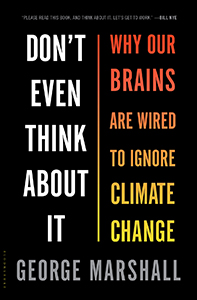Why global warming leaves most of us cold
George Marshall’s shrewd account of the psychology of why we ignore climate change
(James Poulson/AP Photo)
Share

 DON’T EVEN THINK ABOUT IT: WHY OUR BRAINS ARE WIRED TO IGNORE CLIMATE CHANGE
DON’T EVEN THINK ABOUT IT: WHY OUR BRAINS ARE WIRED TO IGNORE CLIMATE CHANGE
By George Marshall
This is a book addressed to those who think the science is settled, the future potentially catastrophic and climate-change deniers are the deluded or bought-off victims of oil companies. Marshall, a British climate-change activist, does recognize the truth of Upton Sinclair’s remark a century ago—that it can be very difficult to convince someone of a truth that will destroy their livelihood—but his aim is to convince his side that opposition is rooted in far more than naked self-interest.
Beyond outright ideological deniers and a few scientific skeptics, Marshall argues, lie the people who will decide the future, for good or ill, “the unconvinced.” To understand them, Marshall spent years talking to experts in psychology, risk perception, linguistics, cultural anthropology, evolutionary psychology and to hundreds of ordinary people.
He discusses how humans interpret the world in the light of recent experience and basic attitudes. Confirmation bias leads people to look for information that reinforces those impressions, and the Internet provides an echo chamber more impervious to opposing voices than anything before it. We want to fit into our social groups, and take cues for how we should think from the people around us. And people don’t treat science as a neutral source of unbiased information. (That concept is championed primarily by those who accept its findings.) “If an attitude toward climate change becomes strongly associated with a group that we actively distrust, then the science can become ‘polluted’ by this conflict,” Marshall writes.
Most importantly, humans have evolved to deal with short-term dangers, where our rational and emotional brains work in tandem. But climate catastrophe is a long way off—in terms of human danger signals—and every specialist Marshall spoke to agreed that we have still not found a way to effectively involve our emotional brains in it. Deniers and believers are fully engaged, but most people are still in wait-and-see mode, with their rational brains aware there is a problem and their emotional brains looking about them to see how to respond. But “both of their brains are sufficiently detached that they do not have to deal with the problem unless actively compelled to do so.”
Those who want to rally the world against the disaster they see coming, Marshall concludes, must avoid adding social and psychological factors to the already powerful economic forces opposing them. He ends with seven pages of shrewd and ethical advice on just how to do that.